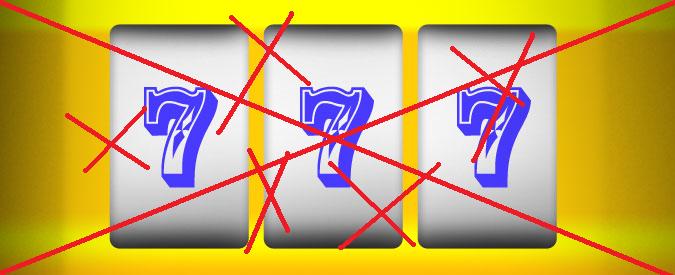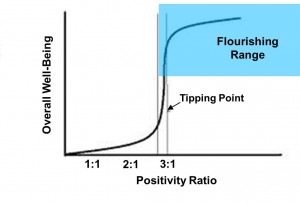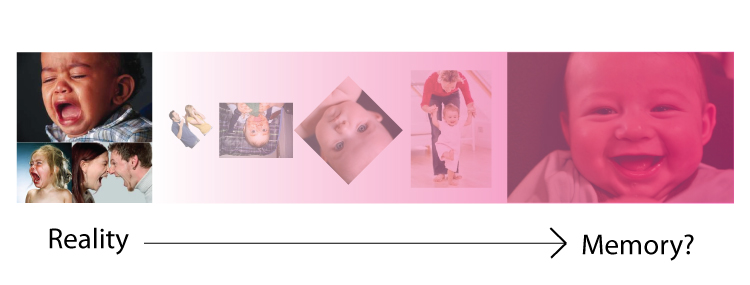Joy begets joy.
You probably know at least a few people who are eternal, effervescent bundles of bliss: no matter how tiring or challenging their day, they just exude happiness. And whenever they enter a room, every person inside it lights up like a holiday tree, catching some of their pleasure, if only momentarily.
Ever wonder what they're doing differently?
Here's their ‘secret', according to Jonathan Haidt, author of The Happiness Hypothesis:
They were born lucky. They won the cortical lottery. Digest these quotes from the research article, Beyond the Hedonic Treadmill:
- Research has shown over and over again “that one's level of well-being is reasonably stable over time (Eid & Diener, 2004).”
- “Behavioral genetic studies show that well-being is moderately heritable.” Identical twins raised apart “were much more similar in their levels of well-being than were dizygotic [fraternal] twins who were reared apart.” (Tellegen et al. 1988)
- “Whereas any single demographic factor typically correlates less than .2 with well-being reports…. personality tends to correlate much more strongly with well-being.” Personality… changes little over a person's lifetime (Deiner & Lucas, 1999).
Hmmm. That's great news for those born happy. Kinda sucks for me.
I definitely didn't win the cortical lottery.
I lost. Badly. Most people who know me would say I'm an unhinged optimist. I am, but only because I've shut my ears to the insecure, critical parts of me that predict failure, that whisper I don't “measure up” in so many ways, and that success will always be outside my grasp, no matter how far I lean or lunge.
From a cortical perspective, I'm at the low end of the spectrum; I dare to say that most of you were born with far stronger dispositions for happiness, optimism, and joy.
But I didn't know this until I began to study happiness. For most of my life, I blamed others for my unhappiness. I blamed my ‘selfish' friends, my ‘uncaring' parents, and my ‘unfaithful' lovers. I thought my unhappiness and insecurity were of their making. Growing up, we learn that our levels of happiness depend on our actions and the actions of others within our environment. I didn't think I was doing anything wrong … so the fault simply had to lie elsewhere.
But once I started taking responsibility for my happiness, all this changed. I realized I had abundant love around me all of the time; The problem was that I wasn't able to easily recognize or receive it. I finally realized how I can be happy—wildly, abundantly happy. But to achieve this happiness I needed to take full responsibility for unhappiness and stop blaming others.
It's been difficult – I struggle daily to hold onto this insight.
Here is a great insight into how happy happens:
GIVE happiness away…
Nobody else can provide you with happiness. Marriages built upon the premise that ‘it is only a good marriage if my partner makes me happy’ won’t last
How to make happy happen:
- You are the one making other people happy.
- You bring joy.
- You supply the laughter.
- You walk the extra mile.
- You are the giver.
- You are the deliverer.
- You smile.
- You take responsibility.
- You seek to benefit others.
If you begin to live like this you will never be able to outrun the flood of happiness that will flow over and into your life for all your days.
If there is just one thing I want you to take away from this post to learn how happy happens, it's this:
Make a conscious choice. Be the wellspring of happiness.
For far to long, I lived the other way around. I blamed others for my unhappiness. And every time I did, I surrendered control of my mood and my life to my biology and my genes.
So let's talk about you. Maybe you're unhappy, maybe you're content, or maybe you're really happy. It doesn't matter – you can go higher! And NO—it's not selfish. The best way to ‘improve' your nagging wife, your unappreciative boss or your selfish friends is to become happier yourself.
Who else believes this?
Buddhism teaches that, since you can't control others' actions, you should remove your attachments to them; they cannot and will not provide consistent happiness. The correct response is to generate happiness from within. To my mind, the idea of removing all attachment is too extreme a response to the unpredictable nature of the world, but the idea of taking personal responsibility for one's own happiness is golden.
The ancient Greeks and Romans (Aristotle, Plato, Boethius, and others) also believed that relying on others for happiness was a mistake. Their solution differed; they suggested that by acting and thinking virtuously—using practical wisdom—humans can generate happiness and fulfillment.
Growing up, I was familiar with both of these schools of thought, but neither appealed to me. The works of ancient westerners seemed more like intellectual and philosophical theories than practical guidebooks. And the works of Buddha—the idea of non-striving—went so against my upbringing that I could never see eye to eye with its radical paradigm.
Positive Psychology spoke to me in a language that nothing else did, in the language of science, numbers, and—most importantly—prose was written by modern Americans. The solutions the ancients came up with, both from the east and from the west, have become a part of the language I'm just now learning. One thing all three agree on is that YOU must be the wellspring of your own happiness. Nobody else can provide you with happiness.
Will living as a wellspring truly create a “flood of happiness that will flow over and into your life for all your days?”
Yes! Even though happiness is based on a unique set-point within the structure of our individual DNA, just a slight internal change in perspective can lead to monumental change. The experience of happiness itself triggers massive positive feedback loops that seek to engender more of the same: well-being and joy.
Let me give you three quick examples.
1. The Losada Ratio Creates Flourishing (or Floundering)
What we get from a relationship can be summarized by the Losada Ratio. When the sum of the positives (encouragement, appreciation, smiles) is three times greater than the sum of the negatives (criticism, contempt, defensiveness, stonewalling), a relationship is significantly more likely to flourish. Dr. Gottman, a marriage scientist, claims he can predict the likelihood of divorce between two spouses with a 94% success rate based solely on this ratio!
The average person has a Losada ratio of 1.9 (below optimal): one-third of their comments are negative. So … if we want our relationship with average individuals to flourish (or negative ones like me 🙂 ), what should we do? Complain that they're not positive enough; that they don't appreciate us enough; that they don't give enough to the relationship? NO. Doing so will only make matters worse. The best course of action is to give away our own happiness.
Barbara Frederickson observed that a Losada Ratio of 3 puts your relationship near the top, where trust and happiness bloom. If you want to bump the 1.9 up to 3, complaining will just lower the number. Instead, increasing your positive comments by just 25% will get things flourishing. And when your relationship is flourishing, you'll get much more joy out of it.
2. Network Effects Spread Happiness (or Unhappiness)
Emotions are contagious. Scientists are still debating how and why, but we all know this intuitively. When we talk to someone sad, we tend to get depressed ourselves. When we talk to someone filled with joy, we just can't help but feel a little better after talking to them.
I've used the word wellspring four times so far. Perhaps it's time to define it so we're on the same page.
Wellspring – an original and bountiful source of something
Guess what? Happiness is the most contagious emotion – it is, by its very nature, a wellspring.
Within a relationship, if you changed from being happy to very happy, a reciprocal friend (someone that considers you a friend whom you also consider a friend) is 20%-120% more likely to also become very happy. The percentage depends on a number of variables (including age and gender difference, geographic distance, and how many mutual friends you have), but you have a lot of control over another person's level of happiness – 20% to 120% is A LOT.
Using myself as an example, if I changed from being happy to very happy, I would have more than a 95% chance of bringing at least one of my friends along with me. Keeping in mind the Losada Ratio, that would mean our relationship would improve dramatically – with both of us subsequently providing more positivity.
3. A Rose Colored Lens Keeps us Happy (or Unhappy)
A common thread throughout positive psychology, cognitive science, social psychology, and behavioral economics is that the world is not as it seems to each of us. Humans are far less conscious that we believe ourselves to be. One consequence of this is that our mood heavily influences our perception of reality.
When you blame others for your unhappiness, you've already lost, because your perception fuels a self-fulfilling prophecy. We humans seek out information that confirms our existing beliefs. If we think of others as unappreciative, we'll hone in on their unintentional slights while filtering out or explaining away their compliments.
It's worse than that. Ever notice that happy people are more agreeable, while unhappy people are more stubborn and defensive? It's called the broaden-and-build theory. If you're already in a bad, blaming mood, you're even less likely to change your mind, even if your spouse or your kids try to talk things out with you. On the other hand, if you're happy you're much more likely to accept you've been making some mistakes and start noticing their smiles and their compliments. Once again, the best way to get happiness from others is to become happy yourself.
We don't really need complicated ideas like emotional contagion, the Losada ratio, and cognitive biases to describe what's going on. Happiness begets happiness. Positivity begets positivity. By virtue of the golden rule, we are more likely to receive positivity when we provide it.
The first step is acceptance. Accept that the largest mood influencer isn't the truth or the environment you grew up in – it's your genes.
From there, it's all you.





Amit, this is a very interesting post. You know that I’m a research nerd, too, so I’m familiar with the studies you are citing.
I think that, although genetics account for 50% of our happiness, it’s important to concentrate on the 40% that we CAN influence: intentional activities aimed at creating positive emotion. (The remaining 10% of the happiness pie has to do with life circumstances.) So, while I agree that we need to accept whatever happiness set-point is in our genes, I believe we should also be active in creating positive, intentional activities that promote happiness. Of course, Sonja Lyubomirsky’s work is essential in this area where she suggests the intentional activities include practicing gratitude, performing acts of kindness, and processing negative experiences with friends to release their negative power.
Also, regarding Buddhism, it’s easy to be concerned about the philosophy of “removing attachments,” but remember that it’s not so much about being detached from someone or something, but practicing nonattachment to outcomes. So, I might be very attached to my partner, but practice nonattachment to things that are her responsibility. It’s a tricky idea that I’m sure I will study and struggle with all of my life!
Love your research-based ideas! Great job, Amit!
Oh absolutely Bobbi! Focusing on the 40% that can be changed is the whole point of this blog. In fact, that will be the focus of my next 20 blog posts (I’m preparing a month-long series on a variety of happiness interventions – some scientifically verified like those you mentioned, and others more experimental). You’re correct – this post did not make clear what it should, I’ve made an update at the end to reflect that.
“So, I might be very attached to my partner, but practice nonattachment to things that are her responsibility. It’s a tricky idea that I’m sure I will study and struggle with all of my life!” Hah! That made no sense to me!! Being the research nerd that I am, I’ve been reading and have become overwhelming convinced I need to make meditation and some buddhist practice a part of my life. I also will be struggling with that idea!
Amin did you ever research why a happy person, when you help somebody needy trying to make him/her happier and after the job is done they loose their temper making you feel so bad for the intimidation reaction that you rather quit a friend or relationship than talk things over
Even if you help by heart will hurt you deeply in your tufts for. 3 to. 6 month you will go back to comfort zone to think about it, how this can happens to me if I’m so good? We’ll did you hear world is not always fair ? depends on the importance you give to people and the security or confidence you have on your self . The only thing matters you have to act be strong go out again and be happy smile hug kiss others and your energy will comeback to you.
Just look for other people and start again in another place. With a Big Smile and if you need appreciation go to a hospital and pray for does that can not enjoy been out with friend like you can Just be Grateful since you wake up and realize how bless you are for what you have what you can do all what you have learned and the healthy you are balanced physically, mentally, and spiritually connected with the Universe that never stop evolution never stop the time so push to the next and don’t luck back live the present with real love and focus on the future from one day one week one month or to the next goal with the time for for it make a plan
Think positive and like a soldier there is no time for grief is time to move or you can die in a bed rest and lose 6 month that you will never recover in you life
Get up and move ! No time for regrets no time for depression no time for thoughts let’s go
Fake a smile you can do it and go out walk a park walk a beach walk a hospital walk a gunmetal if crying will help you
Have a Great Day keep positive kiss more and hug more People
Sandy
I think recognizing that *you* are largely responsible for your own happiness is the #1 way to be happier. When you leave it up to everyone else, you can be sorely disappointed. But when you take responsibility for your bliss, it’s empowering – because then if you’re unhappy, you know that you have the power to make different choices!
Really cool post. I loved the Losada ratio – very interesting! I’d never heard of it before, so thanks for the intro. 🙂
Glad you found it interesting! It’s crazy how something so simple can describe and predict so much.
Yeah, it is extremely empowering! Just this morning I was feeling down (again, for no particular reason), so I decided to have a mindful breakfast (awesome tip!), go for a walk (awesome weather!), and then just laugh for no reason for 5 minutes. What an awesome way to start the day! It’s really too bad that our culture externalizes happiness so much.
I’m glad you chose to have a better day! See, that’s what it’s all about. 🙂 Awesome. It is too bad that we’re supposed to find happiness “out there” – but we can change that, one person at a time.
Amin tell me how you start again known that you loose it all and only and old car is left
You fake a smile but when you have no food no cloth no cleaning products you fake a smile and go to the church for help same with AA Alcoholics Addictive etc
You can not see the Sun in your life until you decider of change your life to dignity start from Zero again at 50 or. 56? It’s not easy do the way evolution goes with time Is mechanical and if you fall out you loose time money and you have yo get up and get in the game again fast or you go under digging stop that start reading sun exercise be clean organize you your place your goal your future and don’t think just do it a day at a time .
Sandy
I have to say I also think it is a very interesting post. I think the research you use to back your statements up are really helpful for many who doubt or are generally gloomy.
I have been practicing the concept for a few years now, and I will say, it is a choice. The moment you stop blaming everyone else and start taking care of your own needs, fulfilling small things that make you happy, it becomes a thing you live out loud by accident. People get on board without even realizing it. Same is true for negative, sad, down right bitchy… I like the happy side much better myself.
I like the happy side much better as well 🙂
I haven’t been living this way for too long, but in just that short period, just like you said – people get on board without even realizing it.
That’s fantastic! I hope it goes well for you and for those around you!
Oh, but I didn’t take it… I only found it on Flickr. Glad you like my selection though; thanks!
Hi there, Amit… I loved the post. I love happiness! These days I find myself to be happy most of the time, but I still don’t think I won any DNA lotteries. For one thing, I was born a woman. For most of my life I was emotionally tied to my hormonal changes (PMS and all that) and don’t remember ever feeling happy until at the age of 48 I had a hysterectomy and then, early fifties, went through menopause, another huge change that wasn’t especially happy.
Now I’m past that and find that I’ve emerged a VERY happy kind of person. I do give my happiness to others as much as possible. That’s easy for me to say because I’m older now and past PMS and menopause.
I was wondering, while reading your post, why happiness is tied only to DNA and not hormones and hormonal changes. Or is it? Perhaps that’s something you’ll go into in other blog posts. Of course you’re a man and aren’t experiencing life the way I have, but probably you live with a woman and that would of course affect your happiness. Like they say, if mom’s not happy, nobody is.
These days I’m loving my happiness factor and find that my occasional brief depressions are all situational, and not permanent.
It’s great that you love happiness, and that you are now very happy!
I actually don’t live with a women – I’m single. That said, I’m aware firsthand at how powerful our hormones can be. When I was 16 years old, I was prescribed steroids for a medical issue. The steroids ended up creating rage and uncontrollable anxiety – I would wake up throughout the night with my heart ready to burst. I was miserable for the next 3-4 months, even after I’d discontinued usage. Even now, I’m more prone to anxiety because of that experience.
However, I haven’t actually read anything in the literature about hormones. Of course, now I’m curious 🙂 Perhaps I’ll post on this in the future …
Hi Amit, Great post I too spent years suffering from “victimitis” blaming external circumstances for my misfortune. But when you realize your happiness is in your own hands it is quite liberating. Ive often wished I was born with the happy gene but I’m blessed I have found a way to overcome my negative tendencies.
I love this! You back up what many of us intuitively know to be true with some excellent research. Even the gloomiest doubters would have to take a look. I have to remind myself every day too – some days are way easier than others – but when I consciously contemplate what is joyous and good in my life it never fails to make me feel happier.
Amit: For the most part, I’d say that I am a happy person. I have my days where I do not feel as happy, but that is when I remind myself of my blessings. I get the most happiness out of helping people. I believe that is my purpose for being on this earth because that is what I have always found myself trying to do as best I can.
Just my two cents . . .
Best Wishes,
William Veasley
That’s great – and I agree completely William. The whole point of my blog is to hopefully help others become happier, much like I’ve been doing myself.
Not only does helping others produce immediate good feelings, it also becomes a part of our purpose and meaning in life, which provides long-lasting satisfaction.
Wonderful! So simple. I am sure there are many people who are faced with the same problems I recently had. I couldn’t find an online service for merging PDF files, but eventually I found a simple one. I just merged 3 PDF files with an online software. I used “http://goo.gl/ic4GaK“.